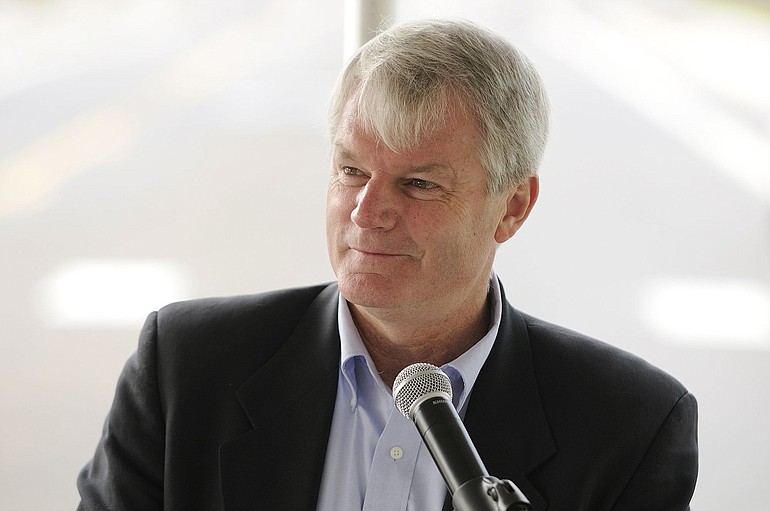U.S. Rep. Brian Baird toured the Gulf oil spill this week and came back impressed with the response to the environmental catastrophe so far.
“I don’t think the public has an appreciation of the magnitude of the effort to respond to this,” the Vancouver Democrat said Tuesday after his return from the Gulf of Mexico.
Over two days, Baird met with officials from the Coast Guard, NOAA, the U.S. Fish and Wildlife Service and BP, toured spill-impacted areas by air and land, and took a boat trip to view despoiled marshes and wildlife areas.
He made the trip as chairman of the House Energy and Environment Subcommittee, which is holding a hearing today to discuss the status of research on deepwater drilling technology. His committee earlier heard from scientists about the environmental effects of the spill and recovery technology.
Some 30,000 people are deployed in the Gulf to protect shores and marshes and contain the oil that continues to gush from the sea floor. Baird said that makes this “the largest recovery effort in the world.”
Yet many workers feel they are being unjustly criticized when things go wrong in the recovery effort, he said.
“We’ve got to give credit where credit’s due,” Baird said. “The Obama administration has done a pretty good job, and compared to other companies, BP has done a pretty good job.”
BP has made “good progress” in drilling relief wells on either side of the gushing well, Baird said, but the task is formidable.
“As they get closer, their precision has to get finer. The logistical challenges are astonishing. … I think they are doing everything they possibly can.”
Baird saved some of his scorn for Louisiana Gov. Bobby Jindal, who has complained about the federal government’s response to containing the oil spill. Among other things, Jindal has demanded that the federal government require BP to pay for building up to 128 miles of sand berms to protect the Louisiana coast — a demand that President Obama acceded to in his Oval Office speech last week.
Many scientists say the sand barriers would be ineffective and could lead to more environmental damage.
“I have very little patience with the governor of Louisiana,” Baird said. “The game is, if you are a local official, pick a tremendously costly, questionably effective and scientifically dubious measure, demand that the federal government do it, and if they balk for either fiscal or scientific reasons, blame them and say they just don’t care.”
“We should take umbrage,” he said. “It’s coming from Bobby Jindal, an anti-government Republican who suggested that money for volcano research was wasted money.”
Baird is a co-sponsor of the Federal Oil Spill Research Program Act, which directs the President to establish a federal interagency committee to conduct oil pollution research, assess the nation’s oil spill prevention and response capabilities, and establish federal priorities for oil spill research and development.
The bill passed his subcommittee last year but failed to make it out of the Senate Energy Committee. Now he hopes to resurrect it.
Research into preventing oil spills has been woefully inadequate at both the corporate and federal levels, Baird said.
“We’ve got a trillion-dollar industry that spends a microscopic portion of its money on research and spill prevention,” he said. “Shareholders in these companies need to be looking carefully at their annual reports and asking very pointed questions about their safety measures. They need to be putting pressure on their boards of directors.”
The National Science Foundation, for its part, has spent less than $10 million annually in recent years on research into spill prevention, Baird said.
“People knew the drilling technology was fallible,” he said. “The last line of defense against the blowout was defective. We need to do a better job of understanding what we can do if there is an accident — to stop the leaks and to recover as much oil as we can.”
Kathie Durbin: 360-735-4523 or kathie.durbin@columbian.com.



